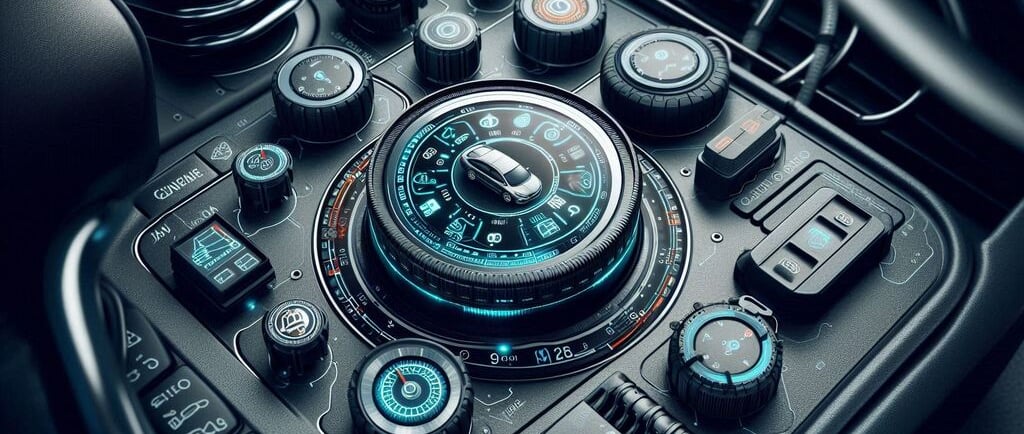TPMS Sensors (Tire Pressure Monitoring System): Monitors tire pressure and alerts the driver to changes.
Maintaining proper tire pressure is crucial for your vehicle’s performance, safety, and fuel efficiency.
TIRES AND WHEELS
11/13/20244 min read


TPMS Sensors: How They Monitor Tire Pressure and Keep You Safe on the Road
Maintaining proper tire pressure is crucial for your vehicle’s performance, safety, and fuel efficiency. While it’s always a good idea to manually check your tires, TPMS sensors (Tire Pressure Monitoring Systems) have made it easier than ever to monitor tire pressure and stay ahead of potential issues.
In this article, we’ll explore how TPMS sensors work, their benefits, and why they’re essential for your vehicle. Plus, we’ll share tips on keeping them in top shape.
What is a TPMS Sensor?
The Basics of TPMS
A TPMS sensor is a small device installed in a vehicle's tires that continuously monitors the air pressure inside each tire. The sensor is typically mounted on the valve stem or attached to the tire rim, where it sends real-time data to the vehicle’s onboard computer. When the sensor detects a tire pressure change—whether it’s too low or too high—it alerts the driver via a warning light on the dashboard.
There are two main types of TPMS sensors:
Direct TPMS Sensors: These sensors directly measure the tire’s air pressure and transmit the data to the vehicle’s computer. This is the most accurate and commonly used type.
Indirect TPMS Sensors: Instead of measuring tire pressure, these sensors monitor changes in wheel speed and use that data to infer when tire pressure is low.
How TPMS Sensors Work
The TPMS sensors continuously monitor the tire pressure while the vehicle is in motion. When the system detects a pressure drop of 25% or more in one or more tires, a warning light will appear on the dashboard, alerting you to the problem.
In addition to the pressure drop alert, direct TPMS sensors also display individual tire pressure information on some vehicles’ dashboards, making it easier to identify which tire needs attention.
Why Are TPMS Sensors Important?
Enhancing Safety
Driving on underinflated tires is a serious safety risk. Tires with low pressure are more likely to overheat, leading to blowouts or loss of control, especially at high speeds. TPMS sensors help prevent these issues by providing early warnings about tire pressure changes. This allows you to address tire pressure problems before they turn into major safety concerns.
Real-Life Example:
Imagine you're driving down the highway, and you notice the TPMS warning light on your dashboard. Instead of continuing to drive on a potentially hazardous underinflated tire, you pull over, check the tire, and add air. Without this system, you may not have noticed the issue until it was too late, potentially preventing an accident.
Improving Fuel Efficiency
Maintaining the correct tire pressure isn’t just about safety; it’s also about efficiency. Underinflated tires increase rolling resistance, which forces the engine to work harder and use more fuel. TPMS sensors help ensure that your tires are always inflated to the optimal pressure, improving your vehicle’s fuel efficiency and saving you money at the gas pump.
Extending Tire Life
Proper tire pressure reduces uneven wear, which can extend the life of your tires. Driving with tires that are too low or too high in pressure can lead to faster, more uneven wear, meaning you’ll need to replace them more frequently. TPMS sensors help ensure that your tires maintain the right pressure, leading to a smoother, more consistent ride and prolonging the life of your tires.
How to Maintain Your TPMS Sensors
Regularly Check Tire Pressure
While TPMS sensors are incredibly helpful, it’s still important to check your tire pressure manually on occasion, especially if the warning light appears. Sometimes, a sensor can malfunction or fail to detect minor pressure drops, so performing manual checks ensures you stay on top of any tire issues.
Use a reliable tire pressure gauge and check your tire pressure when your tires are cold, as the pressure can increase as the tires heat up from driving.
Calibrate the System
In some vehicles, the TPMS sensors need to be recalibrated after tire rotations, replacements, or major changes in driving conditions. Check your vehicle’s owner manual for the recommended procedure for resetting or recalibrating the system.
Replace Worn or Damaged Sensors
Just like tires, TPMS sensors wear out over time. If your sensor is malfunctioning or giving false readings, it’s important to replace it. Most TPMS sensors last between 5-10 years, but this can vary depending on the quality of the sensor and how frequently you drive. If you're unsure about the condition of your sensors, it’s a good idea to have them checked by a professional during regular tire maintenance.
Common TPMS Issues and Solutions
Low Battery in the Sensor
One common issue with TPMS sensors is a low battery. Since most sensors are powered by small batteries that are sealed inside, they can eventually wear out. If your dashboard TPMS light flashes or stays on, it may indicate a low battery in one of the sensors. If this is the case, you may need to replace the sensor.
Damaged or Faulty Sensors
If your TPMS light stays on and manual tire pressure checks don’t reveal any issues, your sensors might be faulty. In this case, the best option is to have the sensors inspected and replaced by a professional.
TPMS Sensor Malfunctions
Sometimes, the TPMS system can malfunction, leading to false alerts or no alerts at all. This can be due to electrical problems, sensor failure, or issues with the vehicle’s onboard computer. If you suspect your TPMS system isn’t working properly, it’s important to have it diagnosed and repaired by an experienced mechanic.
Conclusion: Why TPMS Sensors Are a Must-Have for Vehicle Safety and Efficiency
TPMS sensors are vital for maintaining the correct tire pressure, enhancing safety, improving fuel efficiency, and extending the life of your tires. While they provide valuable warnings and insights, regular maintenance and manual tire pressure checks are also essential to keep your system functioning correctly.


